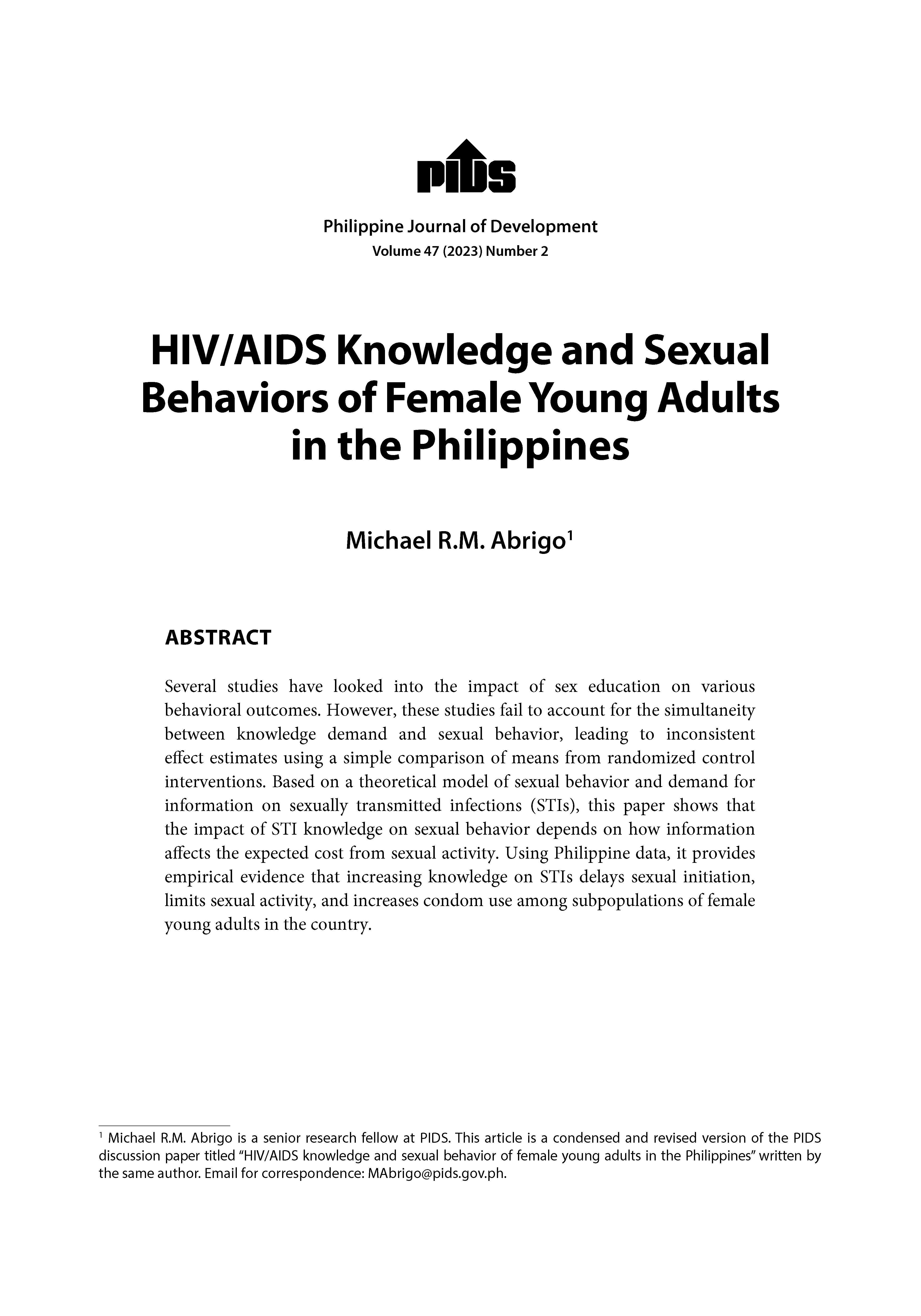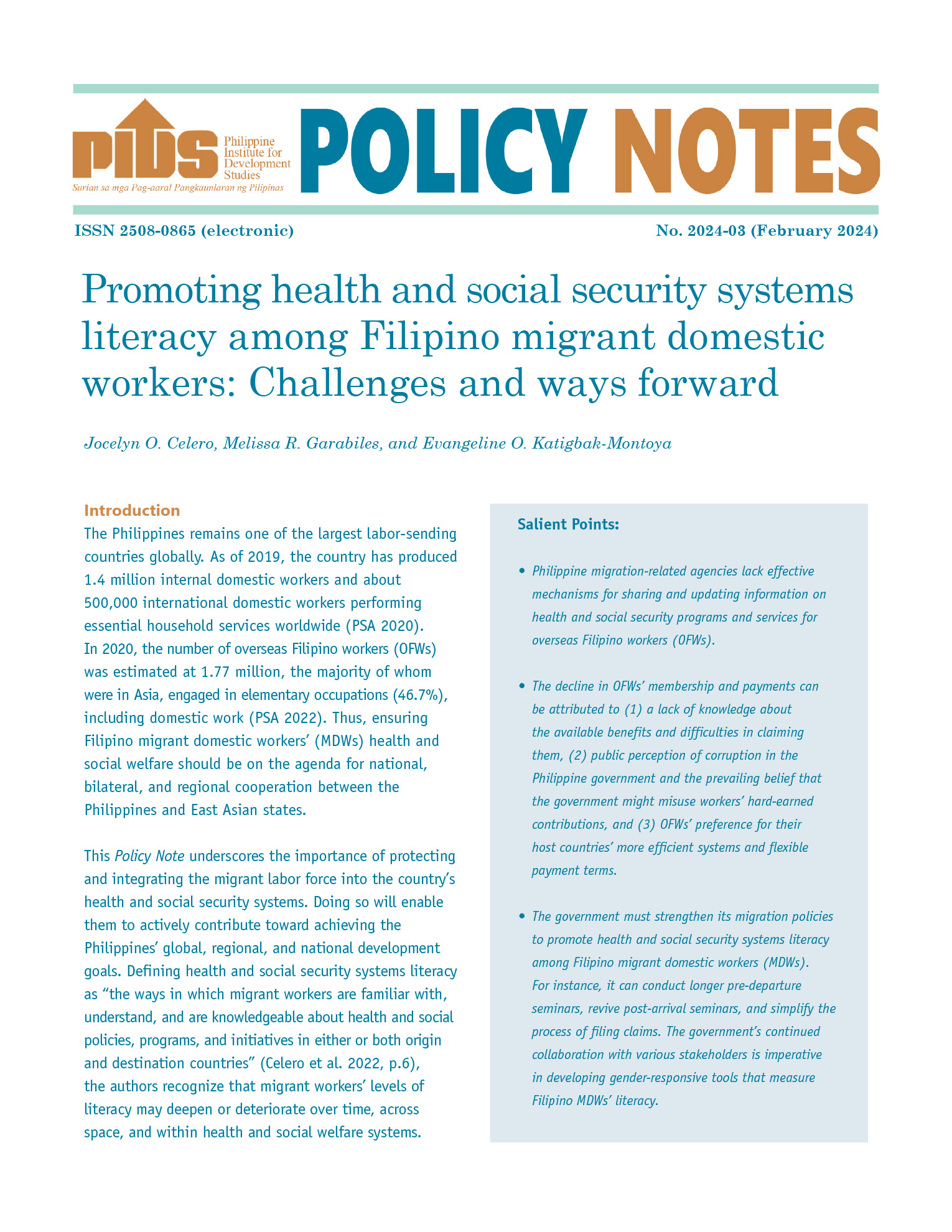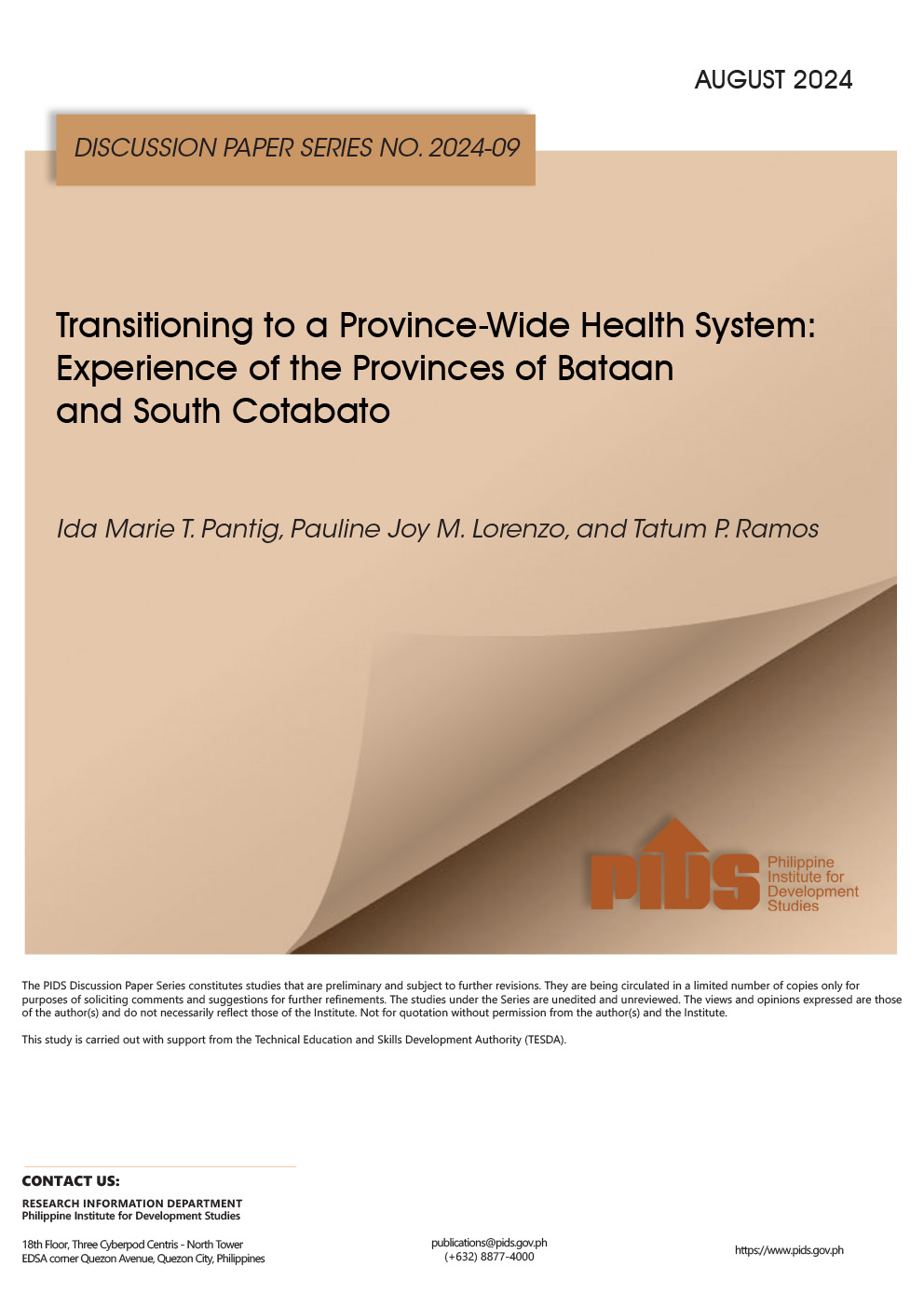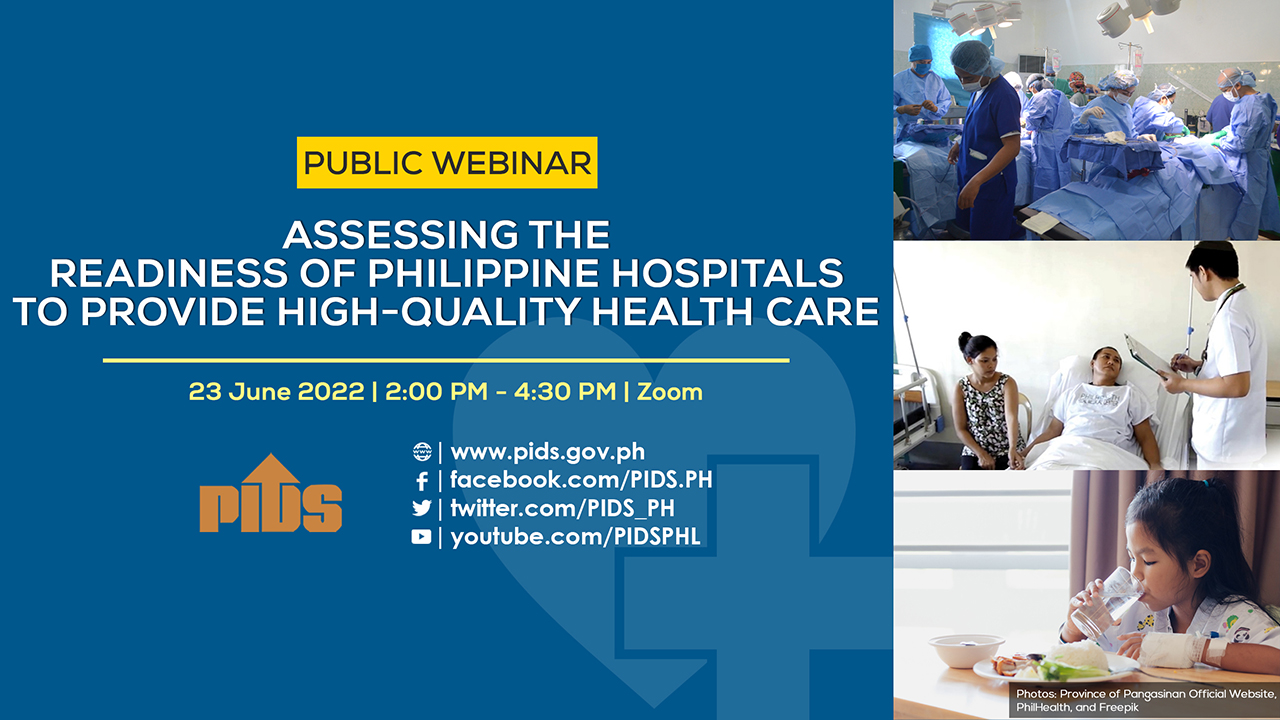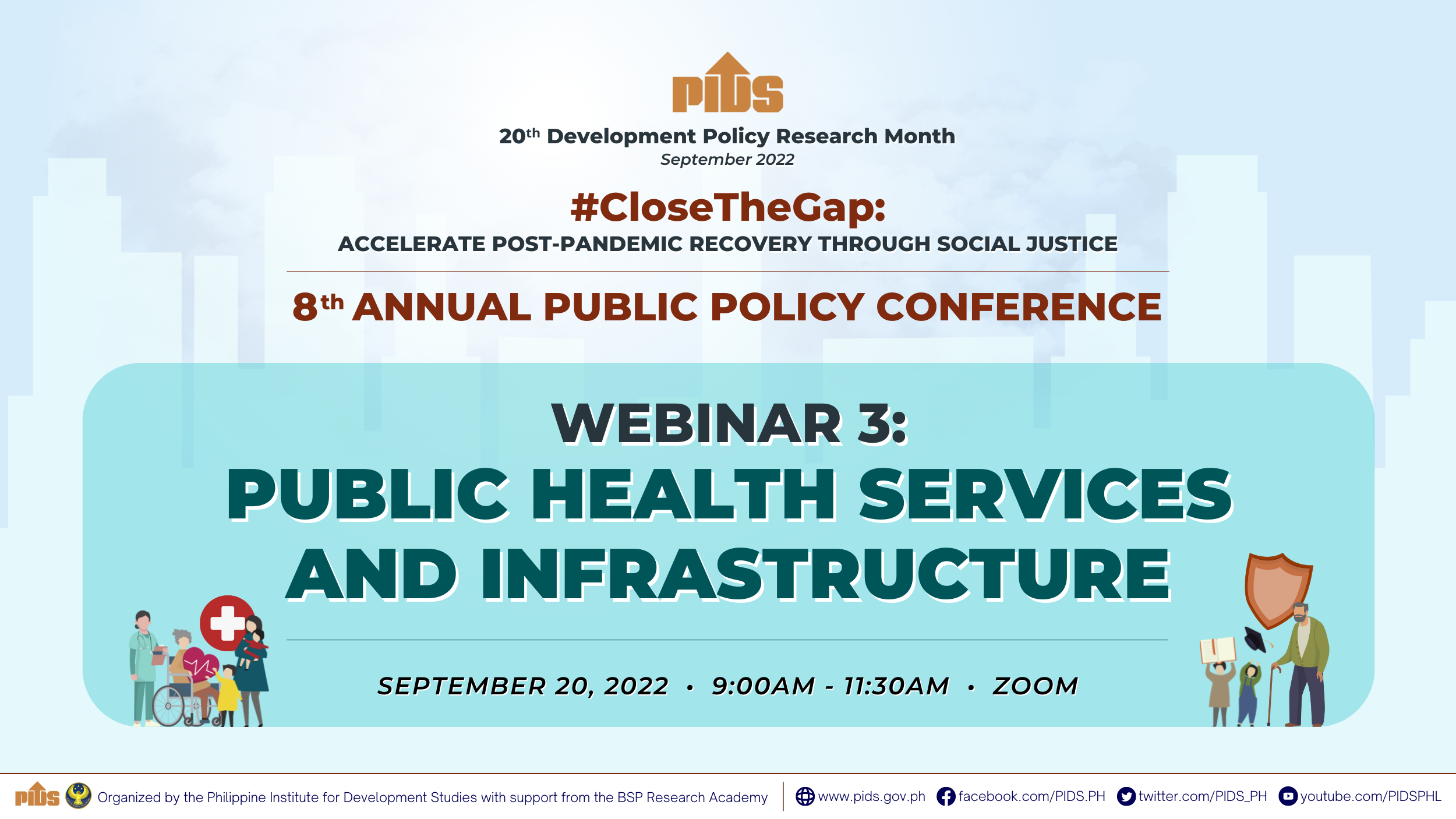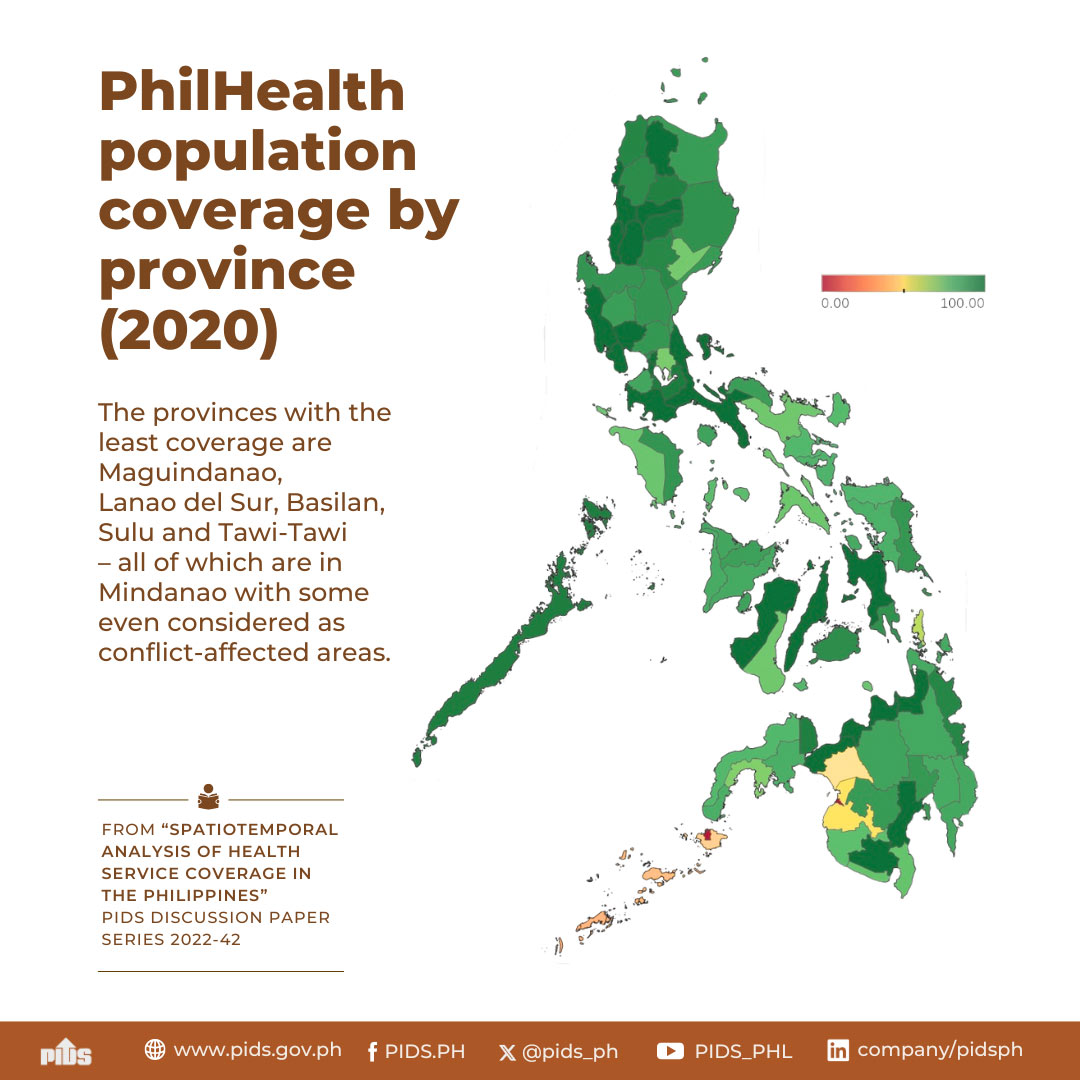A recent study of state think tank Philippine Institute for Development Studies (PIDS) and the Department of Health (DOH) reveals that the leading cause of high tuberculosis (TB) cases in urban poor communities is the patient's delayed visit to the doctor.
Titled "Barriers of Early TB Diagnosis among the Poor in Highly Urbanized Areas in the Philippines", the study noted that although there is a significant drop of TB prevalence over the last decade, TB remains the fourth leading cause of mortality among Filipinos. The 2007 Philippine National Tuberculosis Prevalence Survey revealed that there are approximately three TB cases in every 1,000 Filipinos. Moreover, the DOH confirmed that there is a prevalence of the multidrug resistance TB in the country, a fatal form.
"Higher risk of tuberculosis can be attributed to delayed diagnosis," said Krishna Reyes, study co-author and PIDS research consultant during a recent seminar held at NEDA sa Makati Building, Makati City.
"Early diagnosis is essential in the control and prevention of TB especially in the urban poor population that has a higher risk of acquiring both infectious and noncommunicable diseases," Reyes said. "Urban poor communities have 1.5 times higher prevalence of disease than their nonpoor counterparts."
"Delay in the diagnosis is a contributing factor of higher reproductive rate of TB epidemic at the community level," Reyes said. She explained that transmission usually takes place between the period of occurrence of cough and initiation of treatment.
Reyes noted other factors contributing to delayed TB diagnosis at the patient level such as lack of knowledge about tuberculosis, financial constraints, inaccessibility of healthcare services and facilities, and stigma-related factors.
From focus group discussions of selected participants in Southern Philippines Medical Center in Davao, Mandaue City Health Office in Cebu, and German Doctors in Metro Manila, Reyes and her colleagues found that some patients did not immediately relate their symptoms to TB. Instead, they thought of them as pre-existing conditions like asthma or may be related to pneumonia, which led them to forego or skip healthcare and rely on self-medication.
Lack of money for transportation also hinders patients to seek immediate medical attention. The choice of health facility is also a factor. "Some patients delayed going to a health facility because they were waiting for money so they can go to a private health facility for checkup or diagnosis instead of going to a public health facility. This reflects their low regard for the healthcare provided by government", Reyes said.
The stigma associated with TB remains a critical issue. According to Reyes, tuberculosis is usually associated with other diseases as well as malnutrition and low social stature (poverty). For this reason, others would delay being diagnosed thus lowering their chances of recovery from the disease.
Reyes emphasized the urgency of looking into these factors and developing a strategy to improve TB case detection rate, early diagnosis, and delivery of healthcare service among the urban poor population. She added that it is important to improve the country's public health service as poor people tend to perceive the public health system as unreliable and of poor quality. "Access to health services has a significant impact on the timeliness of TB diagnosis," she said.
For more information, you may download the full study at http://dirp4.pids.gov.ph/webportal/CDN/PUBLICATIONS/pidsdps1418.pdf.
Titled "Barriers of Early TB Diagnosis among the Poor in Highly Urbanized Areas in the Philippines", the study noted that although there is a significant drop of TB prevalence over the last decade, TB remains the fourth leading cause of mortality among Filipinos. The 2007 Philippine National Tuberculosis Prevalence Survey revealed that there are approximately three TB cases in every 1,000 Filipinos. Moreover, the DOH confirmed that there is a prevalence of the multidrug resistance TB in the country, a fatal form.
"Higher risk of tuberculosis can be attributed to delayed diagnosis," said Krishna Reyes, study co-author and PIDS research consultant during a recent seminar held at NEDA sa Makati Building, Makati City.
"Early diagnosis is essential in the control and prevention of TB especially in the urban poor population that has a higher risk of acquiring both infectious and noncommunicable diseases," Reyes said. "Urban poor communities have 1.5 times higher prevalence of disease than their nonpoor counterparts."
"Delay in the diagnosis is a contributing factor of higher reproductive rate of TB epidemic at the community level," Reyes said. She explained that transmission usually takes place between the period of occurrence of cough and initiation of treatment.
Reyes noted other factors contributing to delayed TB diagnosis at the patient level such as lack of knowledge about tuberculosis, financial constraints, inaccessibility of healthcare services and facilities, and stigma-related factors.
From focus group discussions of selected participants in Southern Philippines Medical Center in Davao, Mandaue City Health Office in Cebu, and German Doctors in Metro Manila, Reyes and her colleagues found that some patients did not immediately relate their symptoms to TB. Instead, they thought of them as pre-existing conditions like asthma or may be related to pneumonia, which led them to forego or skip healthcare and rely on self-medication.
Lack of money for transportation also hinders patients to seek immediate medical attention. The choice of health facility is also a factor. "Some patients delayed going to a health facility because they were waiting for money so they can go to a private health facility for checkup or diagnosis instead of going to a public health facility. This reflects their low regard for the healthcare provided by government", Reyes said.
The stigma associated with TB remains a critical issue. According to Reyes, tuberculosis is usually associated with other diseases as well as malnutrition and low social stature (poverty). For this reason, others would delay being diagnosed thus lowering their chances of recovery from the disease.
Reyes emphasized the urgency of looking into these factors and developing a strategy to improve TB case detection rate, early diagnosis, and delivery of healthcare service among the urban poor population. She added that it is important to improve the country's public health service as poor people tend to perceive the public health system as unreliable and of poor quality. "Access to health services has a significant impact on the timeliness of TB diagnosis," she said.
For more information, you may download the full study at http://dirp4.pids.gov.ph/webportal/CDN/PUBLICATIONS/pidsdps1418.pdf.

